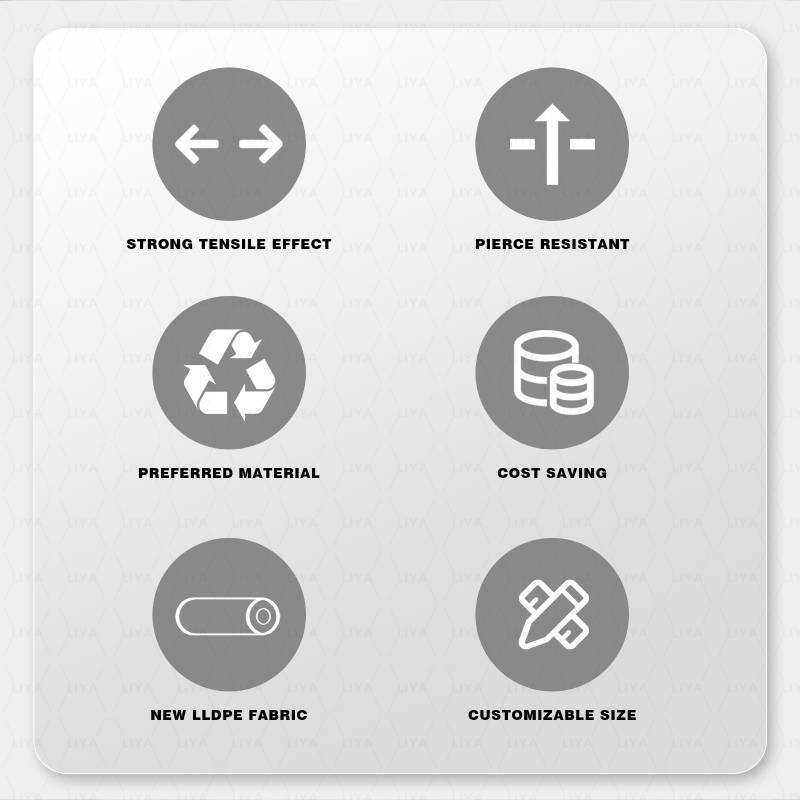Compostable Grocery Bags - Eco-Friendly Shopping Solutions
The Rise of Compostable Grocery Bags A Sustainable Alternative
In recent years, the detrimental effects of plastic on the environment have sparked a global movement towards sustainable practices. One significant area of concern is plastic grocery bags, which contribute heavily to pollution and landfill waste. As consumers become increasingly aware of their ecological footprint, compostable grocery bags have emerged as a feasible and eco-friendly alternative, offering a solution that aligns with the desire for sustainability.
Compostable grocery bags are made from natural materials, such as corn starch, potato starch, and other biodegradable substances. Unlike traditional plastic bags, which can take hundreds of years to decompose, compostable bags break down within a matter of months when exposed to the right conditions—namely heat and moisture. This rapid decomposition minimizes their impact on landfills and reduces greenhouse gas emissions that contribute to climate change.
The appeal of compostable grocery bags extends beyond their environmental benefits. Many consumers appreciate the fact that they are not only functional but also safe for food contact. This characteristic is particularly important in households where fresh produce and groceries are common, ensuring that there is no harmful leaching of chemicals into food items. Furthermore, many brands that produce compostable bags are committed to ethical sourcing and sustainable practices, which resonates with eco-conscious consumers.
compostable grocery bags

While compostable grocery bags offer a promising alternative to traditional plastic bags, it is crucial to understand their limitations. For instance, compostable bags require specific composting conditions to break down effectively. Many municipal composting facilities are equipped to handle such materials, but not all are. As a result, consumers must check local composting regulations to ensure their bags will be processed correctly. If disposed of in standard garbage bins, these bags may still end up in landfills where they cannot decompose efficiently.
Education and awareness are key to maximizing the benefits of compostable grocery bags. Retailers and manufacturers have a responsibility to inform consumers about proper disposal methods and the differences between compostable, biodegradable, and conventional plastic bags. Public campaigns can help drive this message home, encouraging consumers to participate in sustainability efforts actively.
The transition to compostable grocery bags is gaining momentum, with several large grocery chains and brands committing to phase out plastic bags in favor of more sustainable options. This shift reflects a growing recognition of social responsibility within the retail industry, as companies seek to align their practices with consumer values. Moreover, innovations in materials science continue to enhance the quality and affordability of compostable bags, making them a more accessible choice for consumers.
In conclusion, compostable grocery bags present a powerful tool in the fight against plastic pollution. Their ability to decompose naturally and reduce environmental harm positions them as a sustainable alternative that appeals to environmentally conscious consumers. However, successful implementation necessitates widespread education on composting practices and responsible disposal. As more individuals and businesses embrace compostable bags, we take significant steps towards a more sustainable future, one bag at a time. In this collective effort, the transition to compostable grocery bags represents not just an eco-friendly choice, but a commitment to preserving our planet for generations to come.
-
Have the freedom of customizing your custom mailers any way you want! Our dedicated packaging support will help deliver you the mailing experience you need to elevate your shipping experience to the next level! Start making a strong impression on your customers and stand out from your competitors! -
LIYA uses high quality raw materials which directly purchased from large enterprises domestic and overseas such as PetroChina, Sinopec, Sabic, Equate, ExxonMobil, Dow Chemical, Total, and Borouge, ensuring the price advantage and quality of the raw materials. -
LIYA uses high quality raw materials which directly purchased from large enterprises domestic and overseas such as PetroChina, Sinopec, Sabic, Equate, ExxonMobil, Dow Chemical, Total, and Borouge, ensuring the price advantage and quality of the raw materials.





